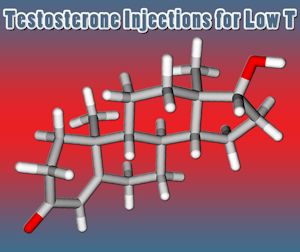Introduction
Growth hormone deficiency (GHD) in men can lead to a variety of health issues, including impacts on the reproductive system. Norditropin, a recombinant human growth hormone, has been used to treat GHD, but its effects on reproductive health warrant further exploration. This article delves into the relationship between Norditropin therapy and reproductive system health in American men suffering from GHD.
Understanding Growth Hormone Deficiency
Growth hormone deficiency is a medical condition characterized by the inadequate secretion of growth hormone from the pituitary gland. In men, GHD can manifest as reduced muscle mass, increased fat mass, and diminished libido, among other symptoms. The reproductive system, particularly testosterone production, can be significantly affected, leading to fertility issues.
Norditropin: A Therapeutic Approach
Norditropin is a form of human growth hormone administered via injection. It is designed to mimic the natural growth hormone produced by the body, thereby addressing the symptoms of GHD. The therapy aims to improve overall health, including muscle strength, bone density, and metabolic function. However, its impact on the reproductive system is a critical area of interest.
Effects on Testosterone Levels
One of the primary concerns for men with GHD is the potential for reduced testosterone levels, which can affect libido and fertility. Studies have shown that Norditropin therapy can lead to an increase in testosterone levels in some men with GHD. This improvement is significant, as it can enhance sexual function and overall well-being. However, the response to therapy can vary, and not all men may experience the same level of benefit.
Impact on Sperm Quality and Fertility
Beyond testosterone levels, the quality of sperm and overall fertility are crucial aspects of reproductive health. Research indicates that Norditropin therapy may positively influence sperm parameters in men with GHD. Improvements in sperm count, motility, and morphology have been observed, suggesting a potential benefit for fertility. However, more comprehensive studies are needed to fully understand the extent of these effects.
Potential Side Effects and Considerations
While Norditropin therapy can offer significant benefits, it is essential to consider potential side effects. These may include joint and muscle pain, swelling, and, in rare cases, changes in blood sugar levels. Monitoring by a healthcare professional is crucial to manage any adverse effects and to adjust the dosage as necessary. Additionally, the long-term impact of Norditropin on reproductive health remains an area of ongoing research.
Clinical Recommendations and Monitoring
For American men with GHD considering Norditropin therapy, a thorough evaluation by an endocrinologist is recommended. Baseline assessments of testosterone levels, sperm quality, and overall reproductive health should be conducted before starting treatment. Regular follow-ups are essential to monitor the therapy's effectiveness and to make any necessary adjustments. Collaboration between endocrinologists and fertility specialists can provide a comprehensive approach to managing GHD and its effects on the reproductive system.
Conclusion
Norditropin therapy offers a promising avenue for managing growth hormone deficiency in American men, with potential benefits for reproductive health. Increases in testosterone levels and improvements in sperm quality highlight the therapy's positive impact. However, individual responses can vary, and ongoing research is needed to fully understand the long-term effects. With careful monitoring and a tailored approach, Norditropin can be an effective component of a comprehensive treatment plan for men with GHD, enhancing both their overall health and reproductive well-being.
Contact Us Today For A Free Consultation

- Norditropin's Role in Combatting Metabolic Syndrome: A Comprehensive Review [Last Updated On: February 18th, 2025] [Originally Added On: February 18th, 2025]
- Norditropin: Enhancing Growth and Health in American Males with GHD [Last Updated On: February 21st, 2025] [Originally Added On: February 21st, 2025]
- Unveiling the Potential of Norditropin in Treating Growth Hormone Deficiency in Prader-Willi Syndrome [Last Updated On: March 5th, 2025] [Originally Added On: March 5th, 2025]
- Unveiling the Impact of Norditropin on Lipid Profiles in Men with Growth Hormone Deficiency [Last Updated On: March 15th, 2025] [Originally Added On: March 15th, 2025]
- Exploring the Efficacy of Norditropin in Treating Growth Hormone Deficiency Amid Gastrointestinal Challenges [Last Updated On: March 16th, 2025] [Originally Added On: March 16th, 2025]
- Norditropin's Impact on Eye Health in Growth Hormone Deficient American Males [Last Updated On: March 16th, 2025] [Originally Added On: March 16th, 2025]
- Unraveling the Impact of Norditropin on Thyroid Function in American Males with Growth Hormone Deficiency [Last Updated On: March 16th, 2025] [Originally Added On: March 16th, 2025]
- Exploring the Safety and Efficacy of Norditropin for Growth Hormone Replacement in Aging American Males [Last Updated On: March 16th, 2025] [Originally Added On: March 16th, 2025]
- Exploring the Impact of Norditropin on Urinary System Health in American Males with Growth Hormone Deficiency [Last Updated On: March 16th, 2025] [Originally Added On: March 16th, 2025]
- Norditropin Enhances Insulin Sensitivity in American Males with Growth Hormone Deficiency [Last Updated On: March 16th, 2025] [Originally Added On: March 16th, 2025]
- Norditropin Enhances Immune Function in Growth Hormone Deficient American Males [Last Updated On: March 17th, 2025] [Originally Added On: March 17th, 2025]
- Norditropin's Long-Term Safety for American Males with Growth Hormone Deficiency [Last Updated On: March 18th, 2025] [Originally Added On: March 18th, 2025]
- Norditropin Enhances Sleep Quality in American Males with Growth Hormone Deficiency [Last Updated On: March 19th, 2025] [Originally Added On: March 19th, 2025]
- Norditropin's Impact on Fertility in American Males with Growth Hormone Deficiency [Last Updated On: March 19th, 2025] [Originally Added On: March 19th, 2025]
- Norditropin: Enhancing Exercise Capacity in American Males with Growth Hormone Deficiency [Last Updated On: March 19th, 2025] [Originally Added On: March 19th, 2025]
- Norditropin: Enhancing Life for Male Cancer Survivors with Growth Hormone Deficiency [Last Updated On: March 21st, 2025] [Originally Added On: March 21st, 2025]
- Norditropin Therapy Enhances Skin Health in American Males with GHD [Last Updated On: March 21st, 2025] [Originally Added On: March 21st, 2025]
- Norditropin Enhances Wound Healing in American Males with Growth Hormone Deficiency [Last Updated On: March 21st, 2025] [Originally Added On: March 21st, 2025]
- Norditropin: Enhancing Cognitive Function in Adults with Growth Hormone Deficiency [Last Updated On: March 21st, 2025] [Originally Added On: March 21st, 2025]
- Norditropin Enhances Vision in American Males with Growth Hormone Deficiency [Last Updated On: March 22nd, 2025] [Originally Added On: March 22nd, 2025]
- Norditropin in Combination Therapies for GHD in American Males: Efficacy and Benefits [Last Updated On: March 22nd, 2025] [Originally Added On: March 22nd, 2025]
- Norditropin: Alleviating Fatigue in American Males with Growth Hormone Deficiency [Last Updated On: March 22nd, 2025] [Originally Added On: March 22nd, 2025]
- Norditropin: Enhancing Mood and Quality of Life in Men with Growth Hormone Deficiency [Last Updated On: March 22nd, 2025] [Originally Added On: March 22nd, 2025]
- Norditropin's Role in Managing Pain for American Males with Growth Hormone Deficiency [Last Updated On: March 22nd, 2025] [Originally Added On: March 22nd, 2025]
- Norditropin: Enhancing Life for American Males with GHD and Autoimmune Disorders [Last Updated On: March 22nd, 2025] [Originally Added On: March 22nd, 2025]
- Norditropin's Impact on Hair Growth in American Men with GHD: Efficacy and Benefits [Last Updated On: March 23rd, 2025] [Originally Added On: March 23rd, 2025]
- Norditropin Therapy: Effects on Adrenal Function in American Men with GHD [Last Updated On: March 23rd, 2025] [Originally Added On: March 23rd, 2025]
- Norditropin's Potential in Reducing Migraines for American Males with Growth Hormone Deficiency [Last Updated On: March 23rd, 2025] [Originally Added On: March 23rd, 2025]
- Norditropin's Impact on Appetite and Weight in American Men with Growth Hormone Deficiency [Last Updated On: March 23rd, 2025] [Originally Added On: March 23rd, 2025]
- Norditropin: Reducing Anxiety in American Males with Growth Hormone Deficiency [Last Updated On: March 24th, 2025] [Originally Added On: March 24th, 2025]
- Norditropin's Role in Managing Growth Hormone Deficiency and Reducing Inflammation [Last Updated On: March 24th, 2025] [Originally Added On: March 24th, 2025]
- Norditropin's Impact on Cardiovascular Health in American Men with Growth Hormone Deficiency [Last Updated On: March 24th, 2025] [Originally Added On: March 24th, 2025]
- Norditropin's Potential to Reduce Ear Infections in American Males with GHD [Last Updated On: March 24th, 2025] [Originally Added On: March 24th, 2025]
- Norditropin Enhances Balance and Coordination in American Men with Growth Hormone Deficiency [Last Updated On: March 24th, 2025] [Originally Added On: March 24th, 2025]
- Norditropin Reduces Allergic Reactions in American Males with Growth Hormone Deficiency [Last Updated On: March 25th, 2025] [Originally Added On: March 25th, 2025]
- Norditropin Therapy's Impact on Dental Health in American Males with GHD [Last Updated On: March 25th, 2025] [Originally Added On: March 25th, 2025]
- Norditropin Enhances Skin Elasticity in American Men with Growth Hormone Deficiency [Last Updated On: March 25th, 2025] [Originally Added On: March 25th, 2025]
- Norditropin Therapy Enhances Digestive Health in American Men with GHD [Last Updated On: March 25th, 2025] [Originally Added On: March 25th, 2025]
- Norditropin's Impact on Hearing in American Men with Growth Hormone Deficiency [Last Updated On: March 25th, 2025] [Originally Added On: March 25th, 2025]
- Norditropin Therapy's Impact on Kidney Function in American Men with GHD [Last Updated On: March 25th, 2025] [Originally Added On: March 25th, 2025]
- Norditropin's Potential Antidepressant Effects in American Men with Growth Hormone Deficiency [Last Updated On: March 25th, 2025] [Originally Added On: March 25th, 2025]
- Norditropin: Enhancing Liver Function in American Males with Growth Hormone Deficiency [Last Updated On: March 26th, 2025] [Originally Added On: March 26th, 2025]
- Norditropin Enhances Memory in American Males with Growth Hormone Deficiency [Last Updated On: March 26th, 2025] [Originally Added On: March 26th, 2025]
- Norditropin's Impact on Thyroid Function in American Men with GHD [Last Updated On: March 26th, 2025] [Originally Added On: March 26th, 2025]
- Norditropin Enhances Eye Health in American Males with Growth Hormone Deficiency [Last Updated On: March 26th, 2025] [Originally Added On: March 26th, 2025]
- Norditropin Therapy Enhances Muscle Health in American Males with GHD [Last Updated On: March 26th, 2025] [Originally Added On: March 26th, 2025]
- Norditropin Enhances Respiratory Function in American Males with Growth Hormone Deficiency [Last Updated On: March 26th, 2025] [Originally Added On: March 26th, 2025]
- Norditropin's Impact on Joint Health in American Males with Growth Hormone Deficiency [Last Updated On: March 26th, 2025] [Originally Added On: March 26th, 2025]
- Norditropin Reduces Osteoporosis Risk in American Males with Growth Hormone Deficiency [Last Updated On: March 26th, 2025] [Originally Added On: March 26th, 2025]
- Norditropin Enhances Throat Health in American Males with Growth Hormone Deficiency [Last Updated On: March 27th, 2025] [Originally Added On: March 27th, 2025]
- Norditropin: Enhancing Life Quality in American Males with GHD and Neurological Disorders [Last Updated On: March 27th, 2025] [Originally Added On: March 27th, 2025]
- Norditropin Therapy Enhances Hair Quality in American Men with Growth Hormone Deficiency [Last Updated On: March 27th, 2025] [Originally Added On: March 27th, 2025]
- Norditropin Therapy Enhances Sexual Health in American Men with Growth Hormone Deficiency [Last Updated On: March 27th, 2025] [Originally Added On: March 27th, 2025]
- Norditropin Enhances Nail Health in American Men with Growth Hormone Deficiency [Last Updated On: March 27th, 2025] [Originally Added On: March 27th, 2025]
- Norditropin: Treating Growth Hormone Deficiency in Gastrointestinal Disorder Patients [Last Updated On: March 28th, 2025] [Originally Added On: March 28th, 2025]
- Norditropin Enhances Lung Function in American Men with Growth Hormone Deficiency [Last Updated On: March 28th, 2025] [Originally Added On: March 28th, 2025]
- Norditropin's Impact on Heart Health in American Men with Growth Hormone Deficiency [Last Updated On: March 29th, 2025] [Originally Added On: March 29th, 2025]
- Norditropin's Impact on Nasal Health in American Men with Growth Hormone Deficiency [Last Updated On: March 30th, 2025] [Originally Added On: March 30th, 2025]
- Norditropin's Potential in Reducing Sinus Issues in American Males with GHD [Last Updated On: March 30th, 2025] [Originally Added On: March 30th, 2025]
- Norditropin: Enhancing Growth and Respiratory Health in American Males with GHD [Last Updated On: March 31st, 2025] [Originally Added On: March 31st, 2025]
- Norditropin Therapy Enhances Vascular Health in American Males with Growth Hormone Deficiency [Last Updated On: April 2nd, 2025] [Originally Added On: April 2nd, 2025]
- Norditropin's Dual Benefits: Enhancing GHD and Anemia Treatment in American Males [Last Updated On: April 2nd, 2025] [Originally Added On: April 2nd, 2025]
- Norditropin's Impact on Lymphatic Health in American Males with GHD [Last Updated On: April 3rd, 2025] [Originally Added On: April 3rd, 2025]
- Norditropin Enhances Blood Health in American Men with Growth Hormone Deficiency [Last Updated On: April 5th, 2025] [Originally Added On: April 5th, 2025]
- Norditropin Therapy Enhances Immune Health in American Males with GHD [Last Updated On: April 6th, 2025] [Originally Added On: April 6th, 2025]
- Norditropin's Role in Managing Growth Hormone Deficiency with Allergic Disorders [Last Updated On: April 6th, 2025] [Originally Added On: April 6th, 2025]
- Norditropin's Potential in Managing Autoimmune Symptoms in GHD American Men [Last Updated On: April 8th, 2025] [Originally Added On: April 8th, 2025]
- Norditropin: Enhancing Life Quality in Men with Growth Hormone Deficiency [Last Updated On: April 9th, 2025] [Originally Added On: April 9th, 2025]
- Norditropin Enhances Neurological Health in Growth Hormone Deficient American Males [Last Updated On: April 9th, 2025] [Originally Added On: April 9th, 2025]
- Norditropin Therapy Enhances Urinary Health in American Males with GHD [Last Updated On: April 10th, 2025] [Originally Added On: April 10th, 2025]
- Norditropin Enhances Digestive Health in American Males with Growth Hormone Deficiency [Last Updated On: April 10th, 2025] [Originally Added On: April 10th, 2025]
- Norditropin Therapy Enhances Musculoskeletal Health in American Males with GHD [Last Updated On: April 10th, 2025] [Originally Added On: April 10th, 2025]
- Norditropin's Potential in Enhancing Skin Health for American Males with GHD [Last Updated On: April 10th, 2025] [Originally Added On: April 10th, 2025]
- Norditropin: Enhancing GHD Treatment in American Males with Skin Disorders [Last Updated On: April 11th, 2025] [Originally Added On: April 11th, 2025]
- Norditropin's Potential in Enhancing Gastrointestinal Health for Males with GHD [Last Updated On: April 11th, 2025] [Originally Added On: April 11th, 2025]
Word Count: 545



















